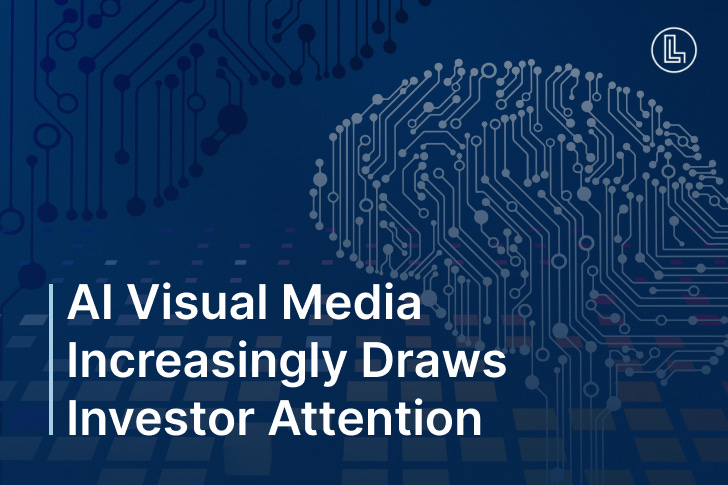AI visual media is having a moment, with PitchBook reporting that “startups are raising record sums to bring AI-generated visuals to enterprise clients.” This subset of generative AI saw VC funding surge 90% in Q1 of this year, bringing in an impressive US$402.7 million in investment, up from US$212.7 million in the previous quarter. According to PitchBook, this is the highest quarterly total in recent years.
So, What is AI Visual Media?
AI technologies are truly transforming the creation and enhancement of visual media. AI visual media allows users to not only create but also enhance, analyze, and interpret visual content, including images, videos, and graphics.
It can be used in a wide variety of ways, such as image and video recognition, where the technology is used to identify specific aspects within images and videos (think facial recognition). The technology can also be used to generate realistic images and videos from scratch, as well as to enhance existing visual content through improving resolution, noise reduction, or color correction. AI can also be used to analyze visual content, extracting important information, themes, or trends.
Why Are These Startups So Attractive to Investors?
PitchBook said it perfectly — visual media startups are solving specific business needs. These startups have extremely high growth potential, with demand rapidly increasing, and they have incredibly diverse applications. They are working to help companies throughout a broad range of industries to enhance customer experiences, increase efficiencies, and gain competitive advantages.
Below are just some of the ways this technology is having a transformative effect:
Marketing and Advertising: The analysis these tools provide can be invaluable to marketers and advertisers, allowing them to get a better understanding of customer preferences and better target advertising. Marketers can also track the presence of the brand across visual content on online platforms such as social media.
Retail: The visual search capabilities of this technology are a game changer for retailers and consumers. Images can now be used to search for specific products, greatly improving the online shopping experience for customers.
Medical Imaging: This is a very exciting area with incredible potential. AI is being used in the health care sector to analyze medical imaging such as X-rays and MRIs to assist health care professionals in detecting diseases and determining diagnoses. It also plays a significant role in telemedicine with its real-time image and video analysis capabilities.
Real Estate: There are numerous ways in which this technology is being deployed in the real estate sector. It can be used to create virtual tours, 3D modeling, enhanced listings, interactive floor plans, targeted advertising campaigns, and virtual staging to help buyers visualize the potential of a space.
What Are the Legal Concerns?
As with any AI technology, there are legal concerns and considerations that must be noted. One of the largest concerns with all generative AI is Intellectual Property (IP) infringement. The utilization of this technology to create or enhance images and videos brings with it IP issues, such as who owns the AI-generated images, as well as the use of copyrighted images and videos to train the AI tools. This has created a legal gray area that is complex and just making its way through the courts. There is also great concern surrounding the generation of deepfakes that can lead to a host of legal issues, such as defamation or the spread of misinformation.
Privacy and data security also come into play with this technology, as AI visual media is often used for the analysis, collecting, and processing of individuals’ images and videos. So, there is the issue of not only compliance with privacy and data protection laws but also of consent to use or share an individual’s visual data.
There is tremendous potential with this technology to transform so many areas of the business world, probably beyond what we can even imagine. This is an area that investors will surely be targeting moving forward as the technology develops even further and the realm of possibilities for what it can do expands. It is certainly an exciting area to watch, but also one to monitor as the legal issues and regulations in this area continue to evolve and shape the future of this technology and the startups driving it forward.
Originally published at https://foleyignite.com.
Discover more about Louis Lehot and explore additional professional insights on his website: https://louislehot.com.
Explore Related Content:







